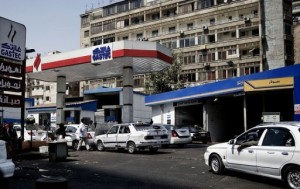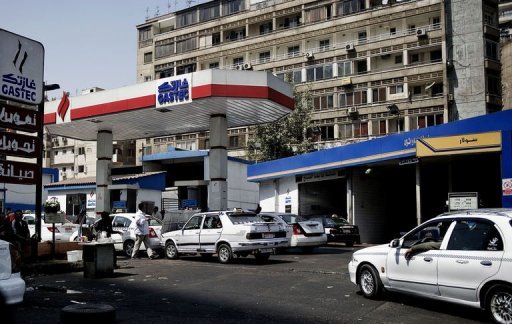
(AFP File, Gianluigi Guercia)
Anger is mounting against recent petroleum price increases after government reductions in subsidies for the sector came into effect on Saturday.
Hussein Mohamed, manager of a Mobil petrol station in Giza, said the reaction has been strong enough to prompt “a 50% increase in fuel consumption” since the government’s announcement.
He said his station has failed to implement the new prices after they were put in place, as “thugs held workers at gunpoint and forced them” to sell at the old price.
Many public sector stations under the Co-op Petroleum Company and Misr Petroleum Company reported selling large quantities of fuel in the five hours between the price hike announcement and its implementation. Many of these products were destined for the black market, where they would be resold at a price below the post-rise levels, the station manager said.
Many citizens have objected to the price increase, which was approved by the government yesterday. Tamer Ahmed, the manager of a Total petrol station said some customers have refused to top up on petrol once the increase was announced.
Drivers of microbuses in particular have objected to the increase in the price of the petrol their vehicles use, Ahmed said, and have vowed to their raise fares in response.
Meanwhile, Mohamed noted that petrol stations have pumped “vastly reduced” quantities of Octane 80 fuel since the start of the month of Ramadan.
The government reduced subsidies on petroleum products in the budget for the current fiscal year to about EGP 100bn from EGP143bn. The previous fiscal year’s subsidies were EGP 135bn, according to Medhat Youssef, former vice-chairman of the Egyptian General Petroleum Corporation (EGPC).
He said the value of petrol subsidies is growing at about EGP 10bn annually, and that previous governments feared implementing them due to possible price inflation in the markets.
Additionally, Youssef said that in the near future, Egypt will face a marked rise in the prices of goods and services as a result of increasing petrol prices, in a government attempt to control the domestic market.
According to Youssef, the government must provide fuel subsidies to “those who deserve them” while keeping in mind the need to improve the economic situation of the ordinary citizen to help compensate for rising prices.
Youssef added the government cannot continue to support a restructuring plan through the next five years “unless it improves citizens’ economic and social situation as quickly as possible”.



